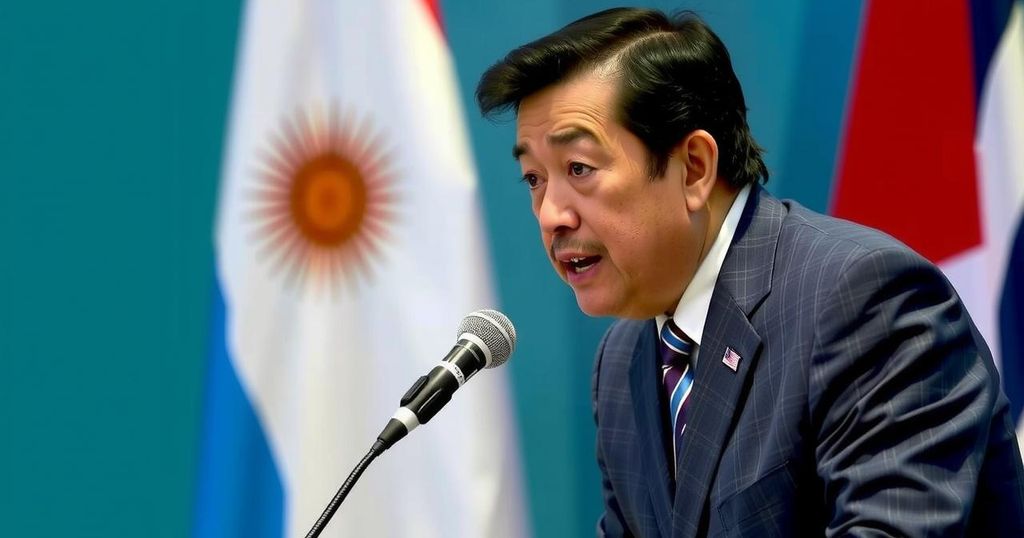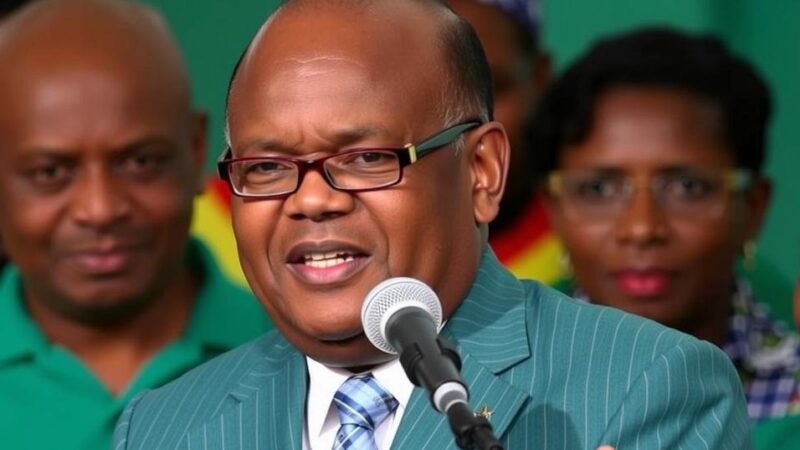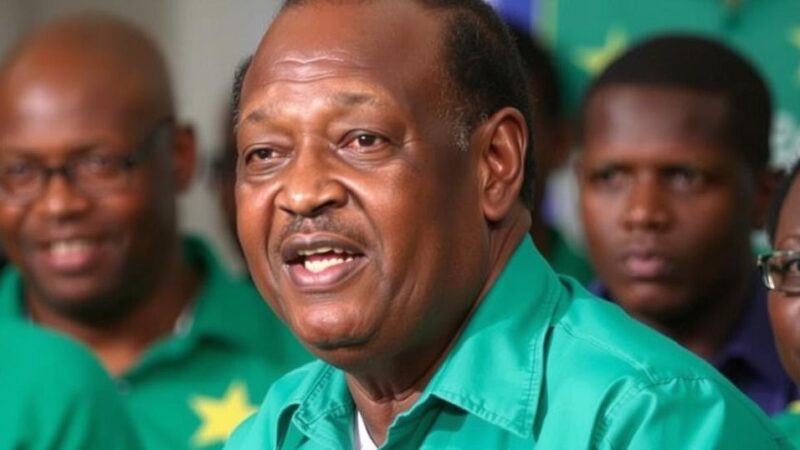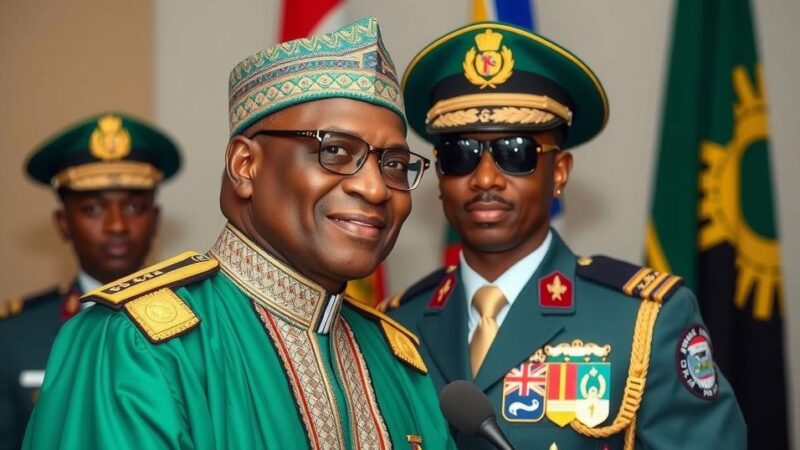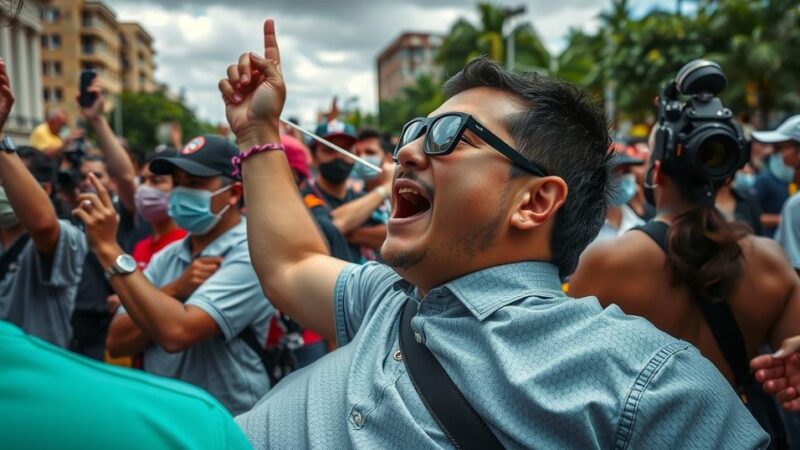President Javier Milei of Argentina has dismissed foreign minister Diana Mondino following the country’s support for lifting the U.S. embargo on Cuba at the UN, marking a notable shift in foreign policy. Gerardo Werthein, previously the ambassador to Washington, has taken her place. Milei’s administration expresses strong opposition to the Cuban government and emphasizes a commitment to human rights and alignment with Western democratic values.
Argentina’s President Javier Milei has dismissed the foreign minister, Diana Mondino, following the country’s recent vote in favor of lifting the United States’ economic embargo on Cuba during a United Nations resolution. This resolution, which passed with the backing of 187 nations, notably saw Argentina diverge from its previous alignment with U.S. and Israeli policies—marking the first instance since Milei’s administration commenced where this divergence has occurred. The United States and Israel were the only two nations to oppose the resolution. In a subsequent reshuffle, Gerardo Werthein, the Argentine ambassador to Washington, has succeeded Mondino in the role of foreign minister. President Milei’s administration reiterated its firm stance against the Cuban regime, declaring, “the country is categorically opposed to the Cuban dictatorship.” This shift in foreign policy represents a significant departure from the preceding left-leaning Peronist government, which had cultivated a close relationship with Cuba, advocating for an end to the embargo imposed by the United States since the 1960s. Historically, Cuba has consistently supported Argentina’s claims of sovereignty regarding the Falkland Islands, a territory contested by Britain, leading to a conflict in 1982. Following the cabinet changes, the President’s office articulated a vision for foreign policy grounded in the values of freedom, sovereignty, and individual rights reflective of Western democracies. An official statement underscored their determination to hold accountable all governments involved in human rights transgressions, stating, “Our country is categorically opposed to the Cuban dictatorship and will remain firm in promoting a foreign policy that condemns all regimes that perpetrate human rights violations.” Frictions had reportedly been escalating between the Milei administration and the Foreign Ministry over varying issues. As a prominent figure, Mondino had played a key role in managing Argentina’s international reputation, often mediating after the President’s more contentious remarks had strained relations with other countries. The U.S. trade embargo, which dates back to 1962, was originally instituted as a strategy to compel Cuba to abandon its socialist policies under Fidel Castro’s regime, yet this objective has largely remained unmet, fueling ongoing regional contention.
The U.S. economic embargo on Cuba was first imposed in 1962 as a response to Fidel Castro’s rise to power and his adoption of socialist policies. The embargo aimed to incentivize Cuba to transition from socialism to capitalism and democracy. Over the years, the embargo has become a point of contention between the U.S. government and many nations within the region, particularly as Cuba has maintained its political system despite external pressures. Since the 1960s, relations between Argentina and Cuba fluctuated, with Argentina historically favoring diplomatic engagement under left-leaning governments. Javier Milei’s recent election as President has introduced a significant shift in Argentina’s foreign policy, one that seeks to align more closely with U.S. interests, particularly regarding human rights issues and opposition to dictatorial regimes.
In summary, the dismissal of Foreign Minister Diana Mondino by President Javier Milei highlights a notable shift in Argentina’s foreign policy direction, particularly regarding relations with Cuba and the U.S. The recent vote supporting the lifting of the U.S. embargo on Cuba has underscored the growing tensions within Milei’s administration and signaled a departure from previous diplomatic stances taken under leftist rule. The new foreign minister, Gerardo Werthein, is expected to further the administration’s commitment to align with the values espoused by Western democracies and promote a foreign policy that strongly condemns human rights violations globally.
Original Source: www.bbc.com

